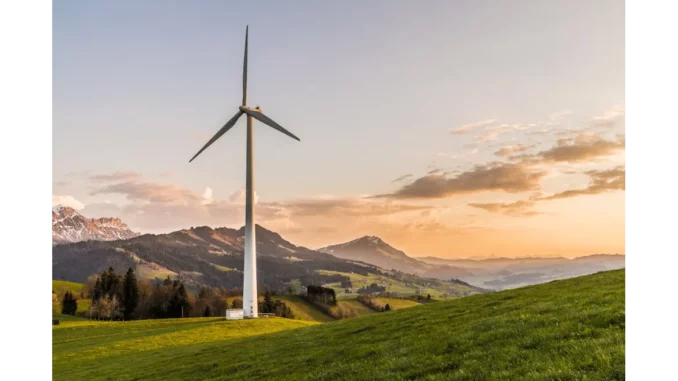
In light of recent warnings from the Energy Crisis Commission, the spotlight has turned sharply on Britain’s dependency on gas for both heating and electricity. To delve deeper into this pressing issue, I engaged in an illuminating discussion with Elizabeth Turner, an esteemed energy analyst with over 20 years of experience. Our conversation vividly highlighted the precarious state of the UK’s energy infrastructure and its “critical vulnerability” to impending crises.
Discover how Focus360 Energy aids sustainable development with Sustainability Statements.
Elizabeth Turner, who has been adeptly navigating the labyrinthine energy sector since the early 2000s, embodies a calm yet resolute confidence that underlines the seriousness of her insights. When probed about the energy crisis that enveloped 2021 and 2022, she was forthright. “We were dangerously underprepared,” she asserted, echoing the findings of the Energy Crisis Commission’s recent report.
The crisis was significantly amplified by the lifting of Covid-19 restrictions and escalating geopolitical tensions, leading to a dramatic surge in gas prices. Elizabeth recounted the period before government intervention, when household bills were set to skyrocket from £2,000 to a staggering £3,500 annually. Although the government eventually intervened with a £150 billion effort to cap these costs at £2,500, Elizabeth noted that this intervention still had “catastrophic consequences,” particularly for the lower-income households.
Her empathetic perspective was palpable as she described the harrowing choices faced by many. “Imagine having to choose between heating your home and putting food on the table,” Elizabeth remarked, highlighting the stark reality for 7.5 million households that were plunged into fuel poverty. This crisis compelled nine in ten households to curtail their energy consumption, while one in ten businesses opted for temporary closures to mitigate financial strain.
Elizabeth drew attention to the fact that such adverse impacts could have been mitigated if greater emphasis had been placed on home insulation and expanding the UK’s gas storage capacity. “We’ve been neglecting these areas for years,” she remarked. “It’s a classic scenario of short-term savings leading to long-term costs.” Her observations underscored a systemic failure to invest in infrastructure that could have preempted the crisis.
The discourse then shifted to the government’s response and the potential role of renewable energy in averting future crises. Elizabeth was candid and critical in her evaluation, stating, “The support schemes were poorly designed.” She lamented the lack of foresight and investment in infrastructure, which could have softened the blow. Nevertheless, Elizabeth remains optimistic about the future, expressing fervour about the transformative potential of renewable energy. She acknowledged that while investing in renewables might initially increase consumer bills, it is a vital step towards protecting households from the volatility of the gas market.
Elizabeth cited Ed Miliband’s ambitious plans to achieve a “net zero” power grid by 2030 and insulate over one million social homes in England as examples of the decisive action required. “These are the kind of decisive actions we need,” she declared. By reducing dependency on gas and bolstering the production of clean, homegrown power, the nation can secure its energy future. Her insights are not merely theoretical; the temporary shutdown of the Sizewell B nuclear power station recently underscored the fragility of the current system. “It’s a reminder of why diversification in our energy sources is crucial,” she observed, pointing to the necessity for a robust renewable energy infrastructure.
As our conversation drew to a close, I queried Elizabeth on her vision for the future. Her response was a blend of hope and pragmatism. “We need to learn from past mistakes and act now,” she emphasised, stressing that the government, industry, and consumers all have pivotal roles in transforming Britain into a clean energy powerhouse. Elizabeth Turner’s perspective offers a compelling narrative of the challenges and opportunities that lie ahead for Britain’s energy sector. Her extensive experience and insights underscore the urgent need for strategic investment and innovation to construct a resilient and sustainable energy future.
Reflecting on our dialogue, I was struck by Elizabeth’s unwavering dedication to a cause that impacts us all. Her words serve as a poignant reminder that while the journey to energy security is fraught with challenges, it is equally rich with opportunities. As Britain stands at this crucial juncture, the decisions made today will indelibly shape the energy landscape for generations to come.


Be the first to comment